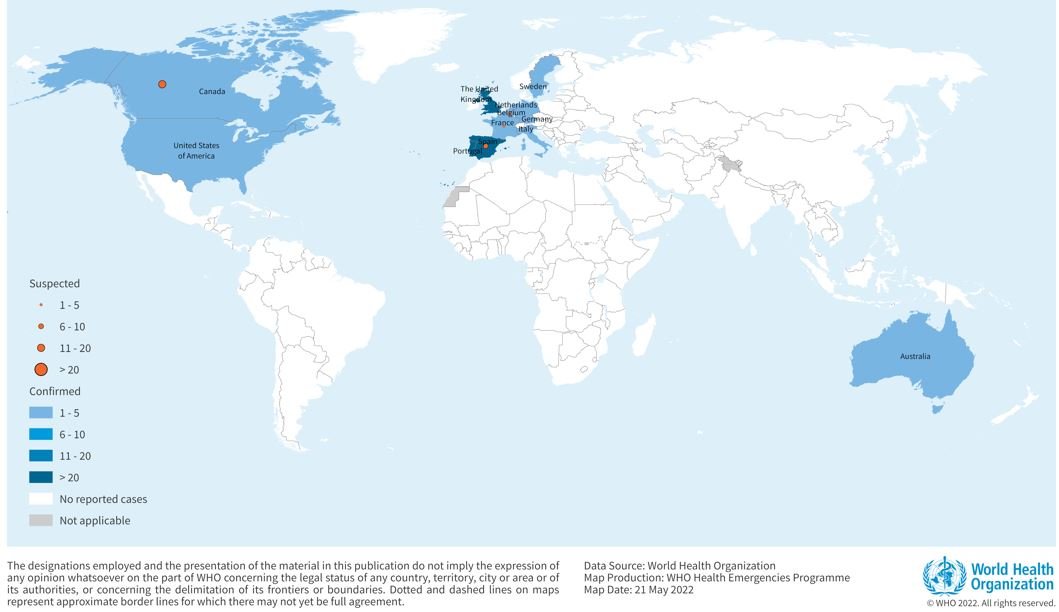The ongoing outbreak of monkeypox across several countries is a scientific mystery, as it's not known exactly where the infection is coming from.
That's according to Luke O'Neill, professor of biochemistry at Trinity College Dublin.
He was speaking as more and more places report cases of the virus.
It has so far been seen in 11 countries that normally don't have the disease.
The World Health Organisation (WHO) says there are also concerns around infection, as more people mix at summer events.
 Source: WHO
Source: WHOProf O'Neill told Pat Kenny there are several unknowns to this outbreak.
"It's nothing to be too fearful of - all these headlines, of course we're hypersensitive to new viruses aren't we?
"At the moment, the scientific mystery is they can't trace where several people have caught it from.
"The first case was May 7th in the UK - that was someone that came back from Nigeria and must have picked it up there off a rodent, potentially.
"The other people, though... they can't really figure out how those people caught it.
"That's a scientific mystery: we'd like to know where it's come from.
"But it's more than likely human-to-human now... but it is quite hard to catch.
"You need very, very close physical contact to pick it up - especially with the lesions.
"In fact the main way to transmit it is symptomatic: so someone has a blister, like the classic chickenpox blisters, that's the source of the infection.
"So they must have caught it off someone with a blister".
'Contact for a prolonged period'
Prof O'Neill says while it is not a sexually-transmissible infection, the close contact associated with sex could have a similar result.
"Sex is close contact for a prolonged period... so sex can be a way to transmit it.
"That's only one though - any kind of close contact for a prolonged period of time, you can catch it off someone else who has it".
But he says an antiviral drug called TPoxx can be effective.
"That was discovered about 20 years ago actually and... it was the US Army invested in a company called Siga, who made this antiviral to kill pox viruses.
"And the Americans have stockpiled again - a million doses or something - just in anticipation of a smallpox outbreak.
"But we have an antiviral, very effective against monkeypox, as it would be against any of these pox viruses.
"So that's like your Plan B, in you a way".
And Prof O'Neill says while any mutation would be a concern, it is unlikely.
"The big unknown is has it changed from the previous one - the usual idea of variants emerging.
"They're sequencing all the genomes now to see if it's different.
"It's a DNA virus, by the way, whereas COVID is an RNA virus.
"DNA viruses don't mutate very much anyway, so the chance of it mutating is pretty low."









